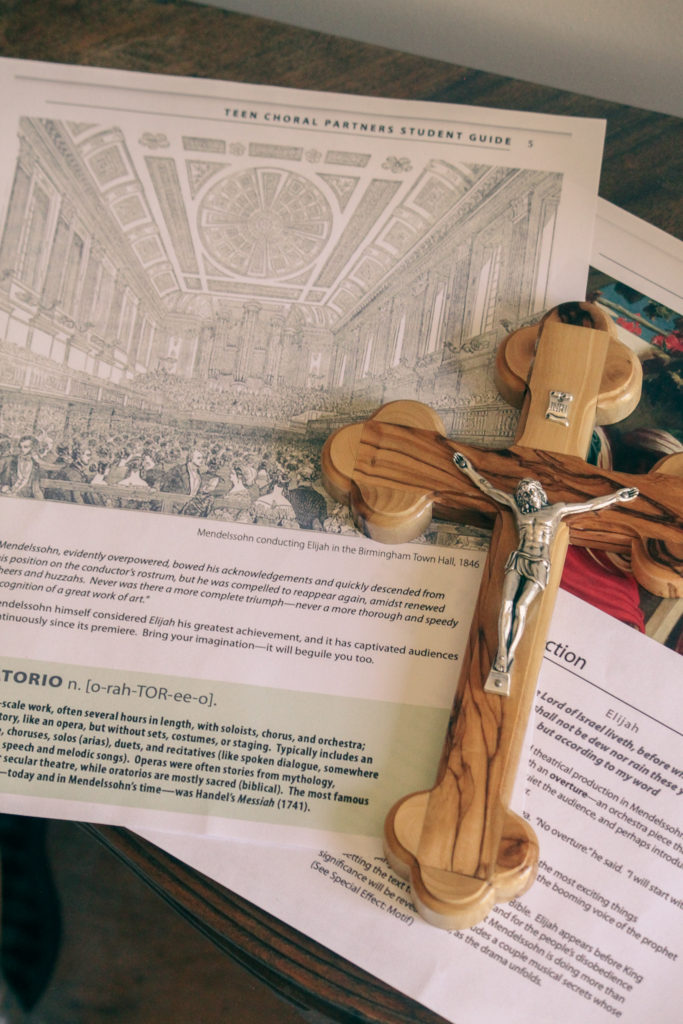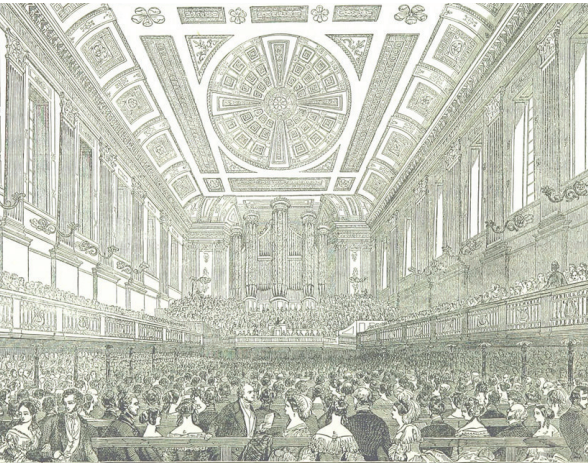
History
One of the best ways to learn more about biblical characters, their stories, and their legacies is by listening to music that has been composed about them and written in their honor! This is just one reason why St. Elijah’s day can be properly celebrated by enjoying the oratorio, Elijah, composed by Felix Mendelssohn in the mid nineteenth century.
As we discussed in Elijah’s post, this prophet is one of the most well-known and recognizable figures of the Old Testament. He also has a dramatic story that accompanies him and that includes his performance of many miracles, his ongoing tension with major kings and queens, and his eventual fiery assumption into heaven. Thus, it makes sense that he would become a natural subject for one of Mendelssohn’s biblical “operas,” which has been met with high acclaim and popularity ever since its premier!
A benefit to this popularity is that there are many readers’ guides for the piece available online, which makes viewing a performance of this work easily accessible and educational. While you sit back and enjoy an online performance of the work, such as this version from The Orchestre National de France conducted by Daniele Gatti, we hope that you will also follow along with one of these guides. Not only can they illuminate some narrative aspects of the composition, but they can also highlight various musical motifs, themes, and symbols that you will be exposed to throughout the oratio. More specifically, we suggest that you download this 2019 guide from the Milwaukee Symphony Orchestra, which thoroughly covers the piece and its background.

Felix Mendelssohn’s Elijah
It is said that as soon as Felix Mendelssohn finished composing his first biblical oratorio, St. Paul, he began considering writing another. The second was Elijah and debuted just a decade later in 1946 in Birmingham, England. Elijah and its wide reception and high reviews would make the composer extremely proud, as he apparently considered the composition to be his greatest musical achievement and gift to the world.

Extremely dedicated to the even the oratorio’s most minor details as well as its large-scale portrayal of the saint, Mendelssohn sought to depict the prophet as strong and zealous but also short-tempered, angry, and brooding. He wanted the Old Testament character to appear to the audience as a real man and not just a distant, dead saint or unrelatable figure. Musically, the piece is filled with a sense of “tragic possibility” and various exciting musical representations of Elijah that pull the listener in and show his story to be some of the most striking and thrilling story-telling in Scripture.
One cannot listen to the piece and not be drawn into the contours of Elijah’s life and the role that he has in God’s greater biblical story. We hope that you’ll enjoy the oratorio as much as we do and see it as an appropriate celebration of Elijah’s day on July 20th!
References:
1. The Milwaukee Symphony Orchestra’s “Mendelssohn: Elijah Student Guide” by Randal Siwggum, https://cdn.mso.org/wp/2019/04/09111342/1819_MSO-edu-YoungChoralGuide-05-FINAL.pdf

